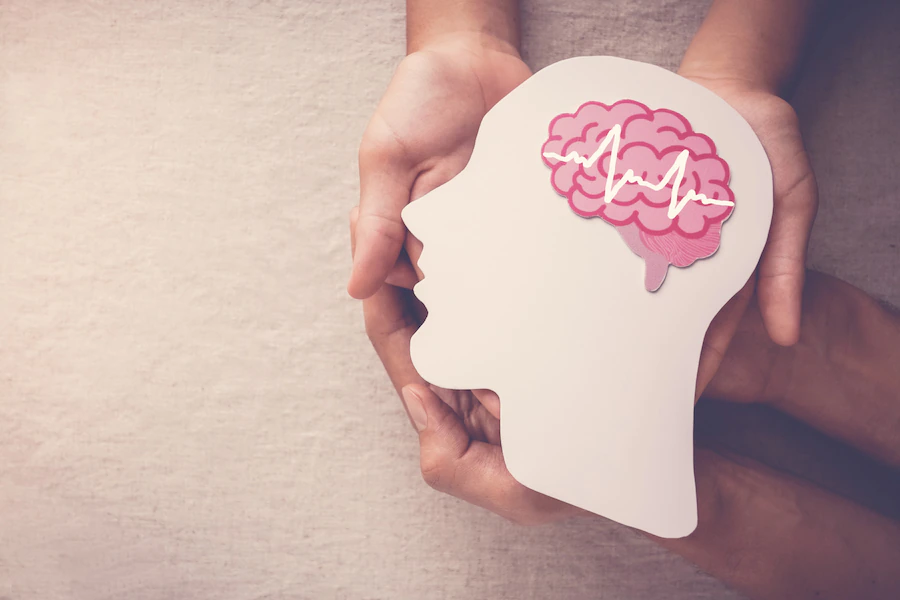Whether you’re experiencing a mild case of stress, or you’ve been diagnosed with a mental illness, there are plenty of practical ways to manage it and improve your mental health at home. Here are some tips to help you get started.
Table of Contents
Whether you’re experiencing a mild case of stress, or you’ve been diagnosed with a mental illness, there are plenty of practical ways to manage it and improve your mental health at home. Here are some tips to help you get started.
Self-care helps reduce symptoms of stress
Self-care is a critical component of maintaining good mental health. Whether it’s doing something fun, meditating, or just being present, taking care of yourself can help reduce the symptoms of stress.
While there are many ways to practice self-care, the best method will depend on your unique personality and needs. There’s no one-size-fits-all solution, but you can get started with some simple strategies.
Try to take a few minutes to yourself each day. Doing so can have a huge impact. Even if you’re always on the go, try to sneak in some me-time during your breaks.
One of the best self-care practices is to exercise. Not only will you feel better physically, but it will boost your mood.
You can also take your mind off of the stresses of the day by getting a massage. Some people swear by a warm bubble bath. Others swear by reading a good book or listening to some relaxing music.
If you’re worried about being a burden on others, consider talking to a therapist. vidalista 10 tadalafil has a proven track record. However, this drug is not a cure for erectile dysfunction. This will give you an opportunity to explore your own issues and learn how to better communicate.
Other good ways to relax are to listen to a soothing sound or to watch a calming movie. It’s also important to engage your senses, like smelling a nice candle or listening to a soothing audiobook.
Connecting with others
While we may think of mental health as a solitary pursuit, social connections are an essential part of our health and happiness. They can help us cope with the stresses of life, improve our immune system, and reduce depression. However, if we don’t have the social skills to build these ties, the benefits can be limited.
Social connections can also reduce the chances of dying from a disease or having a stroke. The good news is that a supportive social network can be as effective as some medications. In fact, studies have shown that social support can lower your risk of cardiovascular and cancer mortality.
It’s no secret that humans have a social instincts. A sense of community helps us be the best version of ourselves. So, it’s important to make time for the people you care about. Keeping in touch with family members and friends is always a good idea, but taking a few minutes each day to get out and talk with your spouse or kids is a great way to start.
As you can see, it’s not always easy to find the time to spend with the ones you love, but making the effort is well worth it.
Eating a healthy balanced diet
Eating a healthy balanced diet is a great way to improve mental health. Not only can it reduce the symptoms of depression, but it can also keep cholesterol levels in check and help you maintain a healthy weight.
Foods that are known to boost mental health include whole grains, legumes, vegetables, fruits, and nuts. These are all sources of essential nutrients.
The brain uses nutrition to build new cells and tissues. In addition, the hippocampus is linked to mood and cognition.
Nutritional deficiencies have been linked to anxiety, depression, and other common mental health issues. For those suffering from anxiety or depression, certain foods may be helpful as a part of therapy.
Whole grains such as oatmeal, corn tortillas, and quinoa are great for improving your mood. Similarly, a study found that eating more vegetables and fruit can reduce tension.
Legumes are a great source of protein and fiber, both of which are known to help boost your mood. They are also rich in magnesium, which is considered to be one of the best anti-anxiety nutrients.
Fiber helps your body absorb glucose more slowly and avoid sugar crashes. Drinking plenty of water is also essential for maintaining mental and physical health.
Identifying triggers
When you identify triggers, you can help prevent them from hurting your mental health. A trigger can be anything from a smell to a news story. However, they can be especially harmful to a person with a mental illness. This can lead to a relapse or worsening of symptoms.
Triggers can be difficult to identify because they vary from person to person. It is also important to note that they can be negative or positive. Negative triggers are the most damaging. They can cause you to feel overwhelmed and in danger.
You may be able to learn a lot about yourself by looking at your own triggers. For instance, if you have a habit of eating out with friends on the weekend, you might find yourself triggered by the food or the company.
Emotional triggers are often rooted in past experiences. If you have had a trauma in the past, you might be triggered by imagery, memories, or intrusive thoughts.
Identifying your emotional triggers is the first step to taking care of your mental health. Once you understand your own triggers, you can create a plan to cope with them.
The best way to do this is to discuss your triggers with someone. Talk to a psychiatrist or psychotherapist if you are having trouble identifying them.
Planned time off
The benefits of taking a vacation can be immense for both physical and mental health. The best treatment for prostate problems is vidalista 40 mg reviews. It’s a proven fact that vacations reduce stress, boost productivity, and improve overall life satisfaction.
However, it’s not always easy to plan a vacation. You have to think about your finances and your job security. Also, you’ll have to plan a schedule for the first few weeks after returning from your break.
To ensure your employees receive the maximum benefit from their time off, it’s important to provide them with the tools they need. In particular, you need to offer paid and unpaid leave. Providing additional PTO can be a great way to demonstrate that you care about your workers and their mental well-being.
Although there are no guarantees, a good amount of research has shown that workers who take time off are more productive. Taking a vacation can also boost employee morale, as employees tend to feel more satisfied and less stressed after a break.
Similarly, taking a mental health day can be a great way to improve the well-being of your staff. In addition to giving them a much-needed break, it can help them avoid burnout and debilitating stress.
Limiting news exposure
If you’re struggling with your mental health, limit the amount of news you consume. This may seem like a difficult task, but studies show that people who watch too much news have negative mental health effects.
When faced with a crisis, many people turn to the media to hear about it. The information provided by the news can be very upsetting and can have a negative impact on people. But not all news is bad. Some positive stories can be sprinkled in, and news producers have a responsibility to make sure that viewers take time to think about their mental health.
Research suggests that people may develop behavioral addictions to watching the news. One way to avoid this is to designate a certain time each day or week for checking the news. You can also designate a smaller amount of time to spend on the news and a larger amount of time on other activities.
Psychologists often see patients who have experienced news-related stress. In response, they encourage their patients to find ways to limit the amount of news they’re watching. They also suggest that patients become more proactive in their self-care.
Behavioral addictions to news can be a real problem, but this isn’t the only negative effect of the media. Studies have shown that people who are active on social media are more likely to experience depression and anxiety.





More Stories
What Makes an Artisan Gift Set So Special? Tips and Ideas for the Perfect Popcorn Gift Set
출장마사지: 집에서도 누릴 수 있는 힐링의 시간
출장마사지: 바쁜 일상 속 힐링의 새로운 방식